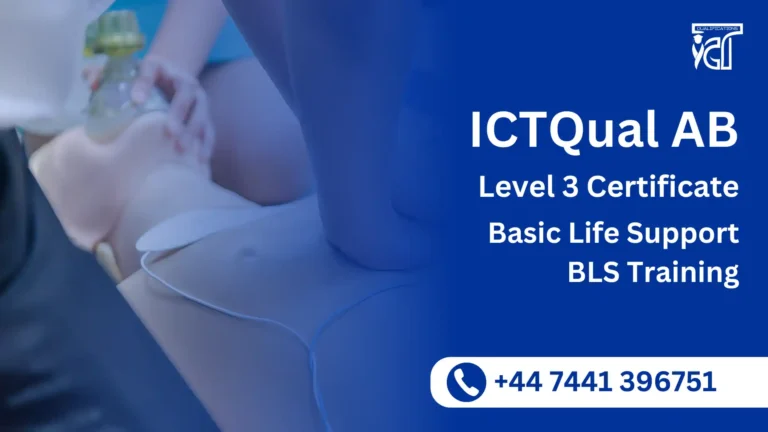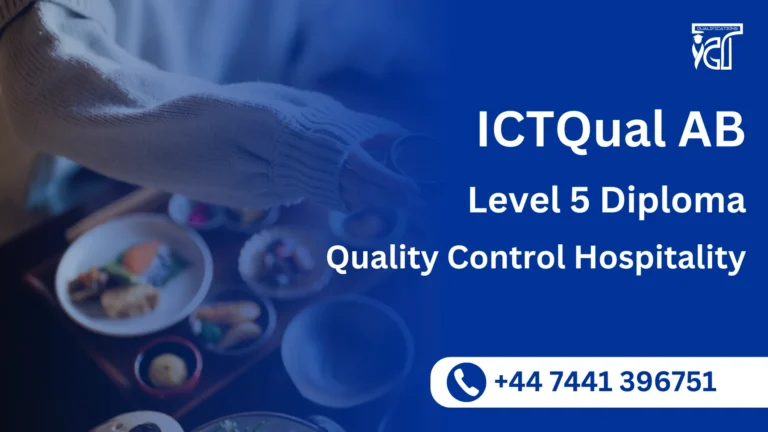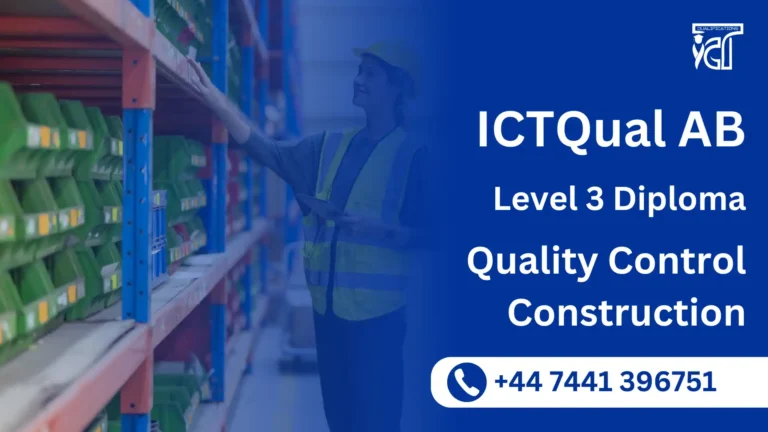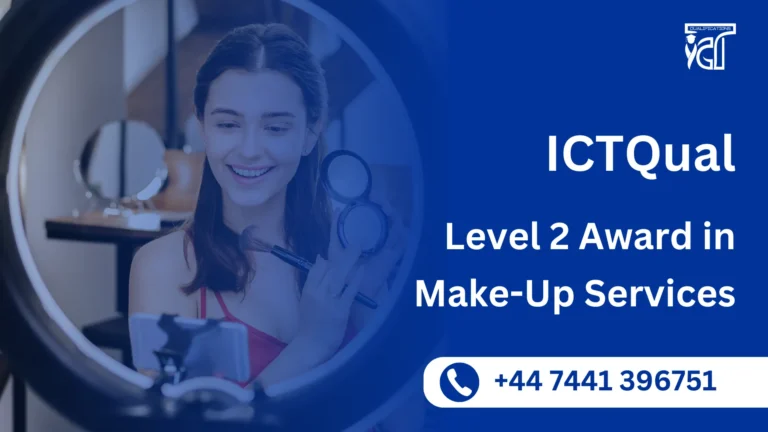In today’s rapidly evolving global landscape, sustainability is no longer just a buzzword—it’s a business imperative. Organizations worldwide are under increasing pressure to reduce their environmental footprint, meet regulatory requirements, and align with sustainable development goals (SDGs). This growing demand calls for qualified leaders who can design and implement comprehensive environmental strategies.
The ICTQual Level 8 Professional Diploma in Environment and Sustainability Management is a cutting-edge qualification that empowers professionals with the strategic, analytical, and technical skills needed to address complex environmental challenges at an organizational and policy-making level.
Sustainability is at the core of global development agendas, from the Paris Agreement to the United Nations’ SDGs. As environmental concerns such as climate change, biodiversity loss, and water scarcity intensify, businesses, governments, and NGOs require experts who can navigate environmental regulations, develop sustainability frameworks, and drive innovation in resource management.
The ICTQual Level 8 Diploma is designed for high-level professionals and builds on core principles of environmental management with a strategic and forward-thinking approach. The curriculum typically includes a blend of theoretical foundations and practical applications.
The ICTQual Level 8 Professional Diploma in Environment and Sustainability Management offers an unparalleled opportunity to gain advanced expertise in one of the world’s most crucial disciplines. With its rigorous curriculum, global recognition, and practical focus, it prepares professionals to become influential leaders in sustainability and environmental stewardship.
Whether you’re seeking to accelerate your career, transition into a high-impact role, or make a tangible difference in the world, this diploma equips you with the tools, knowledge, and credibility to succeed.
ICTQual Level 8 Professional Diploma in Environment and Sustainability Management
Following are the mandatory units of ICTQual Level 8 Professional Diploma in Environment and Sustainability Management:
- Advanced Environmental Policy and Governance
- Sustainable Resource Management
- Climate Change Mitigation and Adaptation
- Corporate Sustainability Strategies
- Advanced Topics in Environmental and Sustainability Management
GLH (Guided Learning Hours) and TQT (Total Qualification Time) are terms commonly used in vocational qualifications to help define the amount of time a learner is expected to spend on their studies.
1. GLH (Guided Learning Hours)
GLH refers to the number of hours a learner spends being directly taught, supervised, or supported during their course. This includes the time spent in activities such as:
- Classroom instruction
- Practical workshops
- One-on-one tutoring or mentoring sessions
- Online learning sessions with tutor support
In other words, GLH represents the time that learners are actively engaged with their instructors or learning activities.
2. TQT (Total Qualification Time)
TQT represents the total amount of time a learner is expected to invest in completing a qualification, including:
- GLH (Guided Learning Hours): Time spent on direct learning, as explained above.
- Self-Directed Learning: This includes time spent on independent study, research, assignment completion, preparation for exams, and any other work the learner does outside of direct teaching hours.
TQT is a broader measure that includes all the time required to achieve the qualification. It helps learners and employers understand the overall commitment required for the qualification.
Key Differences Between GLH and TQT:
- GLH focuses on direct learning with guidance or supervision.
- TQT includes GLH as well as independent study time and other learning-related activities.
Example:
If a qualification has a TQT of 600 hours and a GLH of 250 hours, it means the learner should spend 250 hours in direct learning (classroom, online, or tutor-led sessions) and 350 hours on independent study or research.
Study Unit 1: Advanced Environmental Policy and Governance
- Demonstrate an in-depth understanding of international environmental policy frameworks and agreements, such as the Paris Agreement and Kyoto Protocol.
- Critically analyze the roles of governmental and non-governmental organizations in environmental governance.
- Identify and assess emerging trends and challenges in the implementation of environmental policies.
- Evaluate case studies of successful environmental policy initiatives and their impacts on sustainability.
- Critically assess the effectiveness of various environmental governance mechanisms in achieving sustainability goals.
Study Unit 2: Sustainable Resource Management
- Explain advanced principles of sustainable resource management, focusing on energy, water, land, and materials.
- Assess the implications of resource depletion, ecological footprint, and carrying capacity on sustainability.
- Analyze strategies for sustainable resource extraction, utilization, and conservation.
- Explore and apply circular economy concepts and practices to resource management.
- Evaluate case studies showcasing innovative approaches to sustainable resource management across different sectors.
Study Unit 3: Climate Change Mitigation and Adaptation
- Demonstrate a comprehensive understanding of climate change science, including greenhouse gas emissions, global warming potentials, and climate modeling.
- Critically examine mitigation strategies at global, national, and local levels, including renewable energy deployment, carbon pricing, and technological innovations.
- Analyze adaptation measures to address the impacts of climate change on ecosystems, communities, and economies.
- Evaluate the social, economic, and ethical dimensions of climate change mitigation and adaptation efforts.
- Explore and assess climate finance mechanisms and their roles in supporting climate change mitigation and adaptation initiatives.
Study Unit 4: Corporate Sustainability Strategies
- Understand and apply advanced concepts of corporate sustainability, including triple bottom line reporting, integrated sustainability management, and stakeholder engagement.
- Analyze various corporate sustainability frameworks and standards, such as ISO 26000 and the Global Reporting Initiative.
- Examine and develop strategies for integrating sustainability into business operations, supply chains, and product lifecycles.
- Evaluate case studies of leading companies implementing sustainable practices and achieving competitive advantage.
- Critically assess the challenges and opportunities associated with corporate sustainability initiatives.
Research Project: Advanced Topics in Environmental and Sustainability Management
- Select and define a specific topic within the field of environmental and sustainability management that aligns with personal interests and career goals.
- Conduct a comprehensive literature review to explore the latest research, trends, and debates related to the chosen topic.
- Critically analyze and synthesize research findings into a coherent report, highlighting key insights, gaps in knowledge, and implications for practice.
- Demonstrate advanced research skills, including data collection, analysis, and interpretation.
- Exhibit critical thinking abilities and a deep understanding of advanced concepts in environmental and sustainability management through the development of a well-structured and insightful report.
Benefits of the ICTQual Level 8 Professional Diploma in Environment and Sustainability Management
The ICTQual Level 8 Professional Diploma is more than just an academic qualification—it’s a strategic career investment. Here’s how this globally recognized program can benefit you:
1. Global Recognition and Academic Prestige
- Aligned with the European Qualifications Framework (EQF) Level 8, this diploma is equivalent to a Doctoral-level qualification in many international education systems.
- Recognized and respected by employers, academic institutions, and industry regulators worldwide.
2. Positioned for Leadership Roles
- Equips you with the strategic knowledge and leadership skills needed to take on senior roles such as Sustainability Manager, Environmental Director, or CSR Executive.
- Designed for decision-makers who want to lead environmental policy and sustainable development strategies at an advanced level.
3. Career Advancement and Increased Employability
- Enhances your professional profile and opens doors to high-impact roles in multinational corporations, NGOs, government bodies, and international organizations.
- Demonstrates a commitment to sustainability and positions you as a forward-thinking professional in an in-demand field.
4. Comprehensive and Practical Curriculum
- Covers a wide range of vital topics, including:
- Climate change adaptation
- Environmental law and compliance
- Sustainability reporting
- Resource efficiency and waste management
- Corporate environmental responsibility
- Real-world case studies, applied projects, and critical thinking exercises ensure you can apply what you learn immediately in your job.
5. Flexible Learning for Busy Professionals
- Available in online, part-time, and blended learning formats to suit your schedule.
- Enables you to earn a prestigious qualification without interrupting your career or personal commitments.
6. Pathway to Further Studies and Certifications
- Acts as a stepping-stone for PhD studies or other advanced research opportunities in sustainability and environmental science.
- May qualify you for memberships in professional bodies (e.g., IEMA, IOSH, or CIWEM), boosting your credibility and professional network.
7. Make a Real Impac
- Become a catalyst for change by implementing sustainability strategies that benefit your organization and the environment.
- Help businesses align with the UN Sustainable Development Goals (SDGs) and global climate targets.
8. Industry-Relevant Skills
- Learn how to:
- Conduct Environmental Impact Assessments (EIA)
- Develop sustainability KPIs and reporting frameworks
- Lead green innovation and eco-friendly initiatives
- Understand ESG (Environmental, Social, Governance) principles
- These skills are increasingly valued across all industries—from energy and manufacturing to finance and consulting.
9. Professional Networking Opportunities
- Connect with industry leaders, fellow professionals, and sustainability experts.
- Many providers offer mentorship, alumni networks, and professional development events to help you grow your career.
10. Stay Ahead in a Growing Field
- Environmental and sustainability roles are among the fastest-growing job sectors globally.
- This diploma ensures you’re equipped with up-to-date knowledge and tools to remain competitive and future-ready.
The ICTQual Level 8 Professional Diploma in Environment and Sustainability Management is ideal for:
- Senior Managers and Executives looking to enhance their strategic leadership in sustainability and environmental management.
- Environmental Consultants seeking to advance their expertise and qualifications in sustainable practices and policies.
- Policy Makers focused on creating and implementing sustainability strategies at governmental or organizational levels.
- Corporate Sustainability Officers aiming to drive sustainability initiatives within their organisations.
- Environmental Professionals with significant experience, looking to elevate their skills to a strategic level.
- Leaders in NGOs or International Organisations working on climate change, environmental policy, or sustainability projects.
This course is perfect for those who wish to take on high-level, decision-making roles in environmental and sustainability management.
Entry Requirements
Register Now
Qualification Process
Qualification Process for the ICTQual Level 8 Professional Diploma in Environment and Sustainability Management
- Self-Assessment:
Begin by evaluating your eligibility to ensure you meet the qualification requirements, including work experience, knowledge, and language proficiency. - Registration:
Complete your registration by submitting the required documents, including a scanned copy of a valid ID, and paying the registration fee. - Induction:
An assessor will conduct an induction to confirm your eligibility for the course and explain the evidence requirements. If you do not meet the criteria, your registration will be canceled, and the fee will be refunded. - Assignmnets & Evidence Submission:
Provide all assignmnets and the necessary evidence based on the assessment criteria outlined in the course. If you are unsure of the required evidence, consult with the assessor for guidance on the type and nature of evidence needed. - Feedback and Revision:
The assessor will review your submitted evidence and provide feedback. Evidence that meets the criteria will be marked as “Criteria Met,” while any gaps will be identified. You will be asked to revise and resubmit if needed. - Competence Evidence:
Submit final evidence demonstrating that all learning outcomes have been met. This evidence will be marked as “Criteria Met” by the assessor once it is satisfactory. - Internal Quality Assurance (IQA):
The Internal Quality Assurance Verifier (IQA) will review your evidence to ensure consistency, quality, and compliance with standards. - External Verification:
The IQA will submit your portfolio to ICTQUAL AB External Quality Assurance Verifiers (EQA) for final confirmation. The EQA may contact you directly to verify the authenticity of your evidence. - Certification:
Upon successful completion of all checks, ICTQUAL AB will issue your official certificate, confirming that you have attained the ICTQual Level 8 Professional Diploma in Environment and Sustainability Management.







